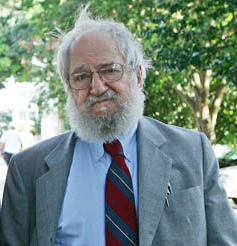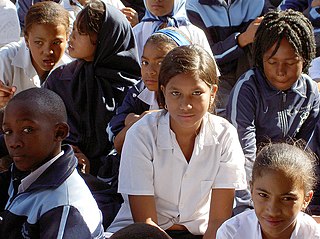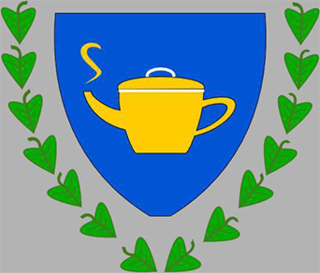
Outcome-based education or outcomes-based education (OBE) is an educational theory that bases each part of an educational system around goals (outcomes). By the end of the educational experience, each student should have achieved the goal. There is no single specified style of teaching or assessment in OBE; instead, classes, opportunities, and assessments should all help students achieve the specified outcomes. The role of the faculty adapts into instructor, trainer, facilitator, and/or mentor based on the outcomes targeted.

In education, a curriculum is the totality of student experiences that occur in an educational process. The term often refers specifically to a planned sequence of instruction, or to a view of the student's experiences in terms of the educator's or school's instructional goals. A curriculum may incorporate the planned interaction of pupils with instructional content, materials, resources, and processes for evaluating the attainment of educational objectives. Curricula are split into several categories: the explicit, the implicit, the excluded, and the extracurricular.

Constructionist learning is the creation by learners of mental models to understand the world around them. Constructionism advocates student-centered, discovery learning where students use what they already know to acquire more knowledge. Students learn through participation in project-based learning where they make connections between different ideas and areas of knowledge facilitated by the teacher through coaching rather than using lectures or step-by-step guidance. Further, constructionism holds that learning can happen most effectively when people are active in making tangible objects in the real world. In this sense, constructionism is connected with experiential learning and builds on Jean Piaget's epistemological theory of constructivism.

Education in South Africa is governed by two national departments, namely the Department of Basic Education (DBE), which is responsible for primary and secondary schools, and the Department of Higher Education and Training (DHET), which is responsible for tertiary education and vocational training. Prior to 2009, both departments were represented in a single Department of Education. Among sub-Saharan African countries, South Africa has one of the highest literacy rates. According to The World Factbook - Central Intelligence Agency as of 2019, 95% of the population aged from 15 and over can read and write in South Africa were respectively literate.
Kloof High School is a public, English medium co-educational high school located in Kloof, a small town between the provincial capital of Pietermaritzburg and Durban in the KwaZulu-Natal province of South Africa.
Education in the Philippines is compulsory at the basic education level, composed of kindergarten, elementary school, junior high school, and senior high school. The educational system is managed by three government agencies by level of education: the Department of Education (DepEd) for basic education; the Commission on Higher Education (CHED) for higher education; and the Technical Education and Skills Development Authority (TESDA) for technical and vocational education. Public education is funded by the national government.
Makupula Secondary School is a Xhosa-medium school serving grades 8–12 located in Kayamandi, Stellenbosch, in the Western Cape region of South Africa. The Western Cape Education Department categorizes it as one of the purely Xhosa-speaking secondary schools in the region.
Education in Jamaica is primarily modeled on the British education system.
In South Africa, matriculation is the final year of high school and the qualification received on graduating from high school, and the minimum university entrance requirements. The first formal examination was conducted in South Africa under the University of the Cape of Good Hope in 1858. In general usage, the school-leaving exams, which are government-administered, are known as the "matric exams"; by extension, students in the final year of high school are known as "matriculants" or, more commonly, "matrics". Once the Matric year has been passed, students are said to have "matriculated".

Heideveld is a town or suburb in the Athlone part of Cape Town, South Africa. Heideveld got its name because the area used to have large grazing grounds where a popular flower ("heideblommetjie") grew in abundance. The area used to be a dairy farm, and cows used to graze amongst the heideblommetjies.

Education in Namibia is compulsory until the year a learner turns 18. There are approximately 1900 schools in Namibia of which 100 are privately owned. Namibian subjects' syllabi are based on the International General Certificate of Secondary Education and Advanced Subsidiary Level which is part of Cambridge International. The Constitution directs the government to provide free primary education; however, families must pay fees for uniforms, stationery, books, hostels, and school improvements. Among sub-Saharan African countries, Namibia has one of the highest literacy rates.

Stanger Secondary School is a public high school located in Stanger / KwaDukuza on the north coast of Kwazulu Natal in South Africa.

Curriculum for Excellence is the national curriculum in Scotland, used by Scottish schools for learners ages 3–18. The implementation of Curriculum for Excellence is overseen by Education Scotland, the executive agency of the Scottish Government responsible for the education system in Scotland.
South African Education and Environment Project is a non-profit organisation serving children and youth through educational support at every level of academic development. The organisation helps young people who are neglected by South Africa's education system.
The Cape Academy of Mathematics, Science and Technology, often abbreviated to "Cape Academy", is a co-educational public boarding school, situated in the Constantia Valley of Cape Town, South Africa. The Cape Academy was founded in 2004 by the Western Cape Education Department to offer quality instruction in the sciences to students from previously disadvantaged backgrounds, as part of the government's strategy to fill the skills gap present in South Africa.
Student Sponsorship Programme South Africa(SSP SA) is a non-profit trust based in Johannesburg, South Africa that enables academically distinguished, economically disadvantaged students to excel at some of the top private and public high schools in the Gauteng and Eastern Cape provinces. The SSP process begins by recruiting exceptional students from underprivileged communities and placing those students into top private and public high schools of nearby districts. To complete the process and ensure a positive outcome, SSP provides extensive support services for the students and their parents throughout all the high school years.

Range High School is an Afrikaans medium school in Matroosfontein, Western Cape, South Africa.
Pinelands High School is a public English medium co-educational high school situated in Forest Drive, Pinelands in the city of Cape Town in the Western Cape province of South Africa. It was opened in July 1952 and the founding principal was Jack Kent. The school now enrolls approximately 980 students.

The 8-4-4 System educational program is a system of education in Kenya with eight years of primary education, four years of secondary education and four years of university education. The system was introduced in 1985 to replace the 7-4-2-3 curriculum, which consisted of seven years of primary school, four years of lower secondary school, two years of upper secondary school and three years of higher education. The 7-4-2-3 system had been adopted when Kenya was part of the initial East African Community. Following the introduction of 8-4-4, CPE became KCPE while KACE became the Kenya Certificate of Secondary Education (KCSE). Primary school was made free and mandatory, and secondary and higher education were subsidized by the government.
Mondale High School is a school in the Western Cape, South Africa. The school was founded in 1982.











